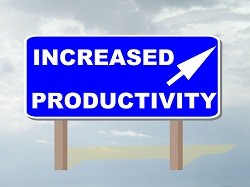 Are you as productive as you’d like to be?
Are you as productive as you’d like to be?
Earlier this week, we looked at the differences between being busy and being productive. Our time and energy are precious to us. When we spend both, we want results. Spinning our wheels uses time and energy too, but that depletes us, whereas being productive with our time and energy leaves us energized
So, how can we redeem our time, making sure that our time is invested and not wasted?
1. Monitor Your Thoughts
First, think about what you’re thinking about. Your thoughts about your writing create your feelings about it, and how you feel determines the actions you take. And, of course, your actions will determine the results you have at the end of your writing time.
For me, many times when I sit down to write a scene or chapter, I suddenly think it’s a boring or dumb idea and no one will like it. If I don’t interrupt my thinking right there and contradict that “stinking thinking,” my emotional reaction is to continue to feel that way until I want to procrastinate with “networking” Facebook or “researching” YouTube videos, or watching a show on Britbox or AcornTV. My thoughts tell me that I don’t have to write yet. It offers me a way to avoid dealing with my fear that my book idea is only interesting to me. This happens more times than I can count, and especially if I’m at a challenging point, or doing a rough draft, which is the scariest for me. I can so easily slip from my productive writing plans into busy work and distraction.
Most days I plan on having to do a “thought detox” when I get started. I know it’s probably coming. Each person must deal with their negative thoughts in their own way. For me, it works best if I pray, reaffirm that God is helping me create, and trusting Him with the outcome. Then I get to work. The sooner in the day you do the mental detox, the sooner you will be productive. You’ll also sidestep the anxiety and procrastination and addictive eating or Netflix bingeing. Too many days I’ve wasted most of the day planning to write but indulging anxious feelings first, then being disgusted with myself, then finally working on my stinking thinking, and getting down to writing about 4:00 in the afternoon. I’ll write 1-2,000 words and kick myself for not beginning much earlier and writing three times as much. What a waste of a writing day!
2. Set Self-Imposed Specific Deadlines
This trick pertains to those writing under contract as much as those writing on spec or who are self-publishing. It’s basic human nature. If you give yourself two years to write a book, it will take you two years. If you give yourself four months to write a book and that’s all you can give, it will take you four months. (Get used to deadlines. You won’t say to an editor, “Let’s leave the deadline in the contract blank, because I don’t know how long this will take.”)
You might think setting deadlines like that won’t work, but it’s just like when you were in school. You had two weeks to get a paper done, or you had two weeks to get the book read. How did you know how long it would take you to get that paper written? When was it due? That’s how long it took you. You have to treat self-created deadlines the same way.
Studies have repeatedly shown that when you give yourself a shorter amount of time to produce a result, it’s much more energizing and enjoyable. Bear that in mind when creating your deadlines. Giving myself two hours to write 2,000 words is much more energizing than giving myself all day to do it. It will take all day then, interspersed with lots of procrastinating which makes me even more tired in the end. With a shorter time deadline, there’s no time for stressing and confusion and procrastination, then making yourself get back to work. You just get to the writing and whiz along usually.
3. Break It Down: Daily and Hourly NON-Negotiable Deadlines
To improve productivity, set tighter production deadlines every day. Example: “I’ll write this blog post in two hours.” (Or “I’ll proofread three chapters” or “write 2,000 words” in two hours.) Then close out all your apps, set a timer, and go! It’s a mindset, a thought choice. You already have the skill of creating non-negotiable deals and deadlines with yourself. At one point, many of us made a non-negotiable deal with ourselves that said, “If my baby is hungry or has a messy diaper, I will always feed her and change her as soon as possible.” We didn’t have to keep negotiating with ourselves every few days when we didn’t want to get out of bed in the middle of the night.
We’ve made similar non-negotiable deals with ourselves about all kinds of things, from being faithful to a spouse, to paying rent on time (whether we felt like it at the moment or not, whether or not we were tired, and whether or not we just wanted to do something else.) Making non-negotiable deals with yourself and keeping your word to yourself is a skill you already have. Think about how you use that skill in other areas of your life. Then apply that skill to your writing.
4. Make Results-Focused Task Lists
To be more productive, don’t create a to-do list that has you spend time doing something, like “spend two hours on marketing.” That’s an invitation to busy work, not useful for productivity. You don’t want to just spend activity time—you want to produce a result. Instead of “spend two hours on marketing,” your to-do list item for those two hours might read, “write a blog post, find two more agents to query, and announce my new blog post on Facebook.” If you focus on results, you will be more efficient with your time and not get sidetracked on Facebook reading everyone else’s posts. Always focus on results, not time spent. (Your result might be words written or revised, pages of research for your novel, lessons done from a book you’re studying on craft, etc.) Save your browsing of social media for after your work is done.
I used to have on my calendar things like “study character book two hours.” It’s interesting and helpful to learn new information, but unless I actually do the exercises at the end of each chapter and apply what I learn to my WIP, I find the time hasn’t been very productive. (Remember, we’re talking here about producing results.) Taking in information, via books or podcasts or blogs, certainly can have value, depending on what you’re reading. But it’s so easy for those of us who love books and information to fool ourselves into thinking we’ve had a productive day because we read James Scott Bell’s most recent plotting book. It might have been good, it might potentially help us write better, but we haven’t actually produced anything simply by reading. I AM VERY GUILTY OF THIS. I would so much rather read about writing than write! It makes me FEEL productive without actually having to produce anything. I LOVE books about writing—I have so many that I could open a store all by myself. But I learned that I had to leave them as a treat or reward AFTER the daily writing got done if I’m only going to read them.
5. Eliminate Distractions To Be Productive.
Productive writers allow themselves very little or no time to indulge in stress or confusion. They don’t check Facebook, or turn on the TV. You give yourself one hour to revise four pages of your novel, you sit down and you get it done. And you’re very focused because there’s that timer going. See also I’m Losing My Mind and Your Phone Habit OR Your Writing Life: It’s Your Choice for dealing with smartphone distractions. I use Internet blocking apps too, like Freedom software and Anti-Social software (both free).
Oddly enough, I find that my 2,000 words written in two hours is just as good as the same amount produced over an entire day or week. When you give yourself a time frame, your alertness goes up, your focus intensifies, your productivity increases. You feel efficient. So, try it out. Race the clock. Set a timer and give yourself half an hour to flesh out a character for your book. Will it be complete in half an hour? No. You’ll add to it later, but you’ll have something solid to work with.
6. Plan. Plan. Plan Some More.
To be productive, plan before you take action. Starting faster doesn’t get it done faster if you don’t have a plan. This isn’t an “outlining vs. writing by the seat of your pants” issue. Pantsers have to make plans, or they would miss deadlines right and left too. No matter what your writing style is, no one meets deadlines without specific plans of what they intend to accomplish on any given writing day. If there’s something you don’t know how to do, then your plan includes researching how to do it, and the timeframe for accomplishing that. You don’t want to write from a pressured last-minute state—it’s like writing with a gun to your head—but from a planned and energized state. You’ll enjoy the writing more and be doubly productive.
7. Work Hard. Play Hard.
Studies show that the most productive people—not just writers—alternate working hard with playing hard. The most productive writers I know alternate short work periods (30-60 minutes) with decent rest or play periods (30 minutes). The rest or play can be anything rejuvenating that you look forward to: half an hour of a favorite show, a walk outside, relaxing with a fiction book of someone else’s, etc. (You don’t count things like folding laundry or loading the dishwasher as a break. It might be a break from sitting and writing, and you might untangle a plot problem that way, but it won’t rejuvenate you or energize you. It’s just a different kind of work.) Work hard. Rest or play hard. Work creates results. Rest creates energy. Rinse and repeat.
Most of us—me included—can do twice as much writing as we’re already doing. We’re all working on lots of things besides writing. We all have challenges in our lives that make the writing harder at times. I wouldn’t say that without the experience to back it up. Big challenges come in our personal lives, our work lives, and our health. If you continue to write long enough, you will probably deal with them all. But learning some productivity habits—knowing how to get results from the time and energy you invest—will keep you in the writing game.
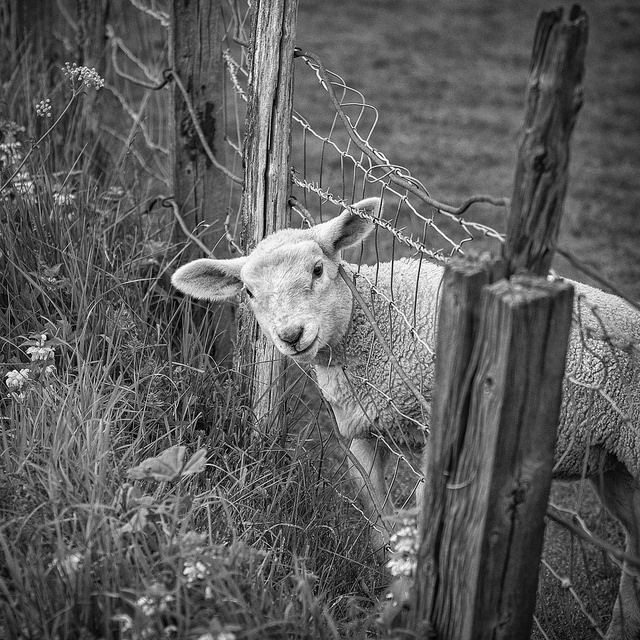 After losing two family members in the pandemic, I had a month-long severe reaction this spring to my second Covid shot. When I resurfaced, feeling practically comatose, I was behind on one Christmas mystery book deadline and a novel (set in 1850s England.) None of my decades-old “get started” techniques worked, which induced a near panic.
After losing two family members in the pandemic, I had a month-long severe reaction this spring to my second Covid shot. When I resurfaced, feeling practically comatose, I was behind on one Christmas mystery book deadline and a novel (set in 1850s England.) None of my decades-old “get started” techniques worked, which induced a near panic.
 A new book was released officially today that I hope every one of you will buy. A couple of weeks ago, I received and listened to an early audio recording of
A new book was released officially today that I hope every one of you will buy. A couple of weeks ago, I received and listened to an early audio recording of  In addition to a Covid family death, I lost two friends in December, plus my last (and favorite) uncle. The focus was on grieving, plus a severe autoimmune flare-up it caused.
In addition to a Covid family death, I lost two friends in December, plus my last (and favorite) uncle. The focus was on grieving, plus a severe autoimmune flare-up it caused. 

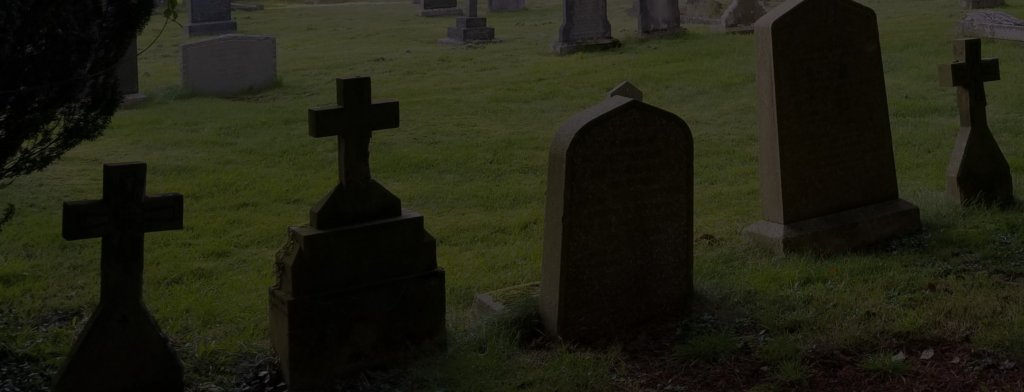

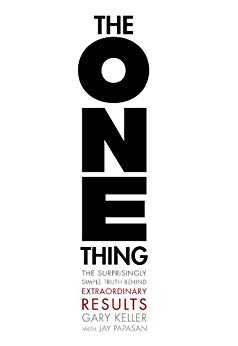 The author of
The author of 

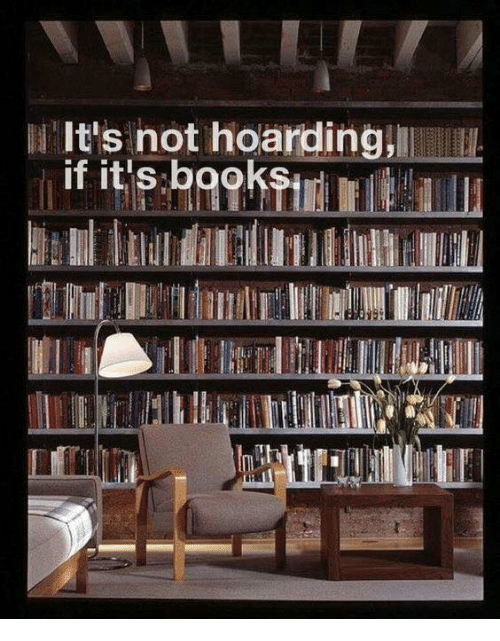
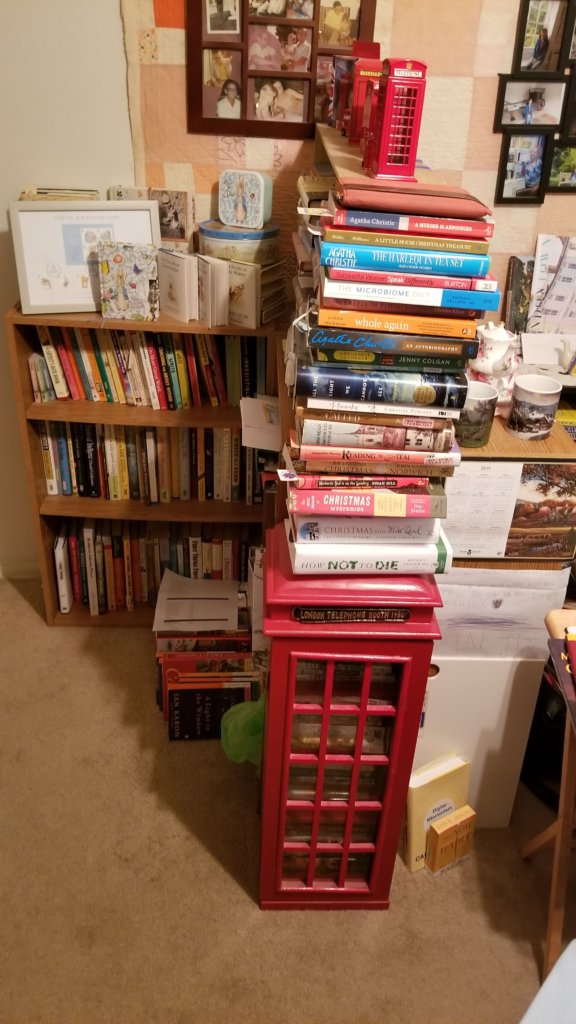
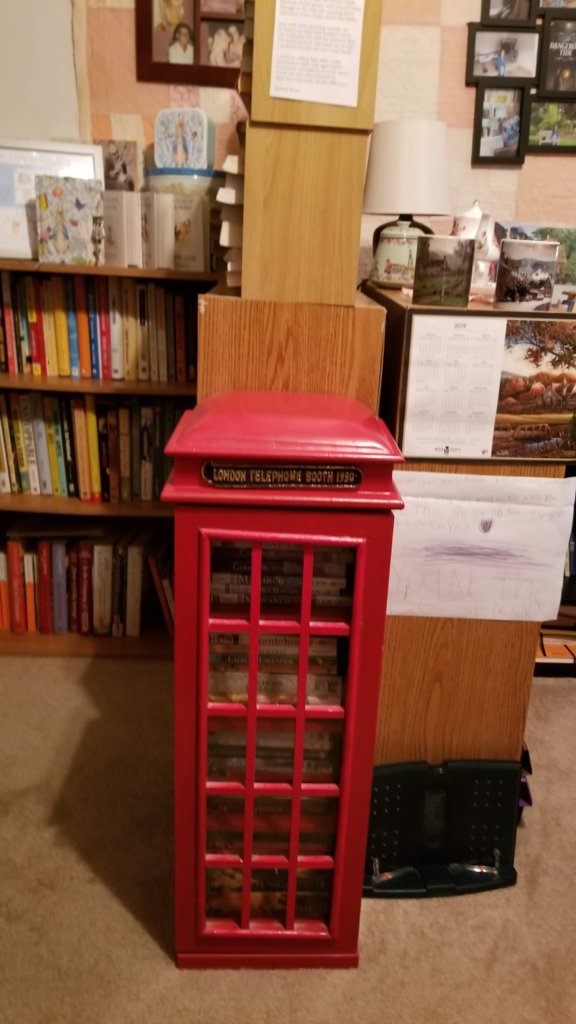
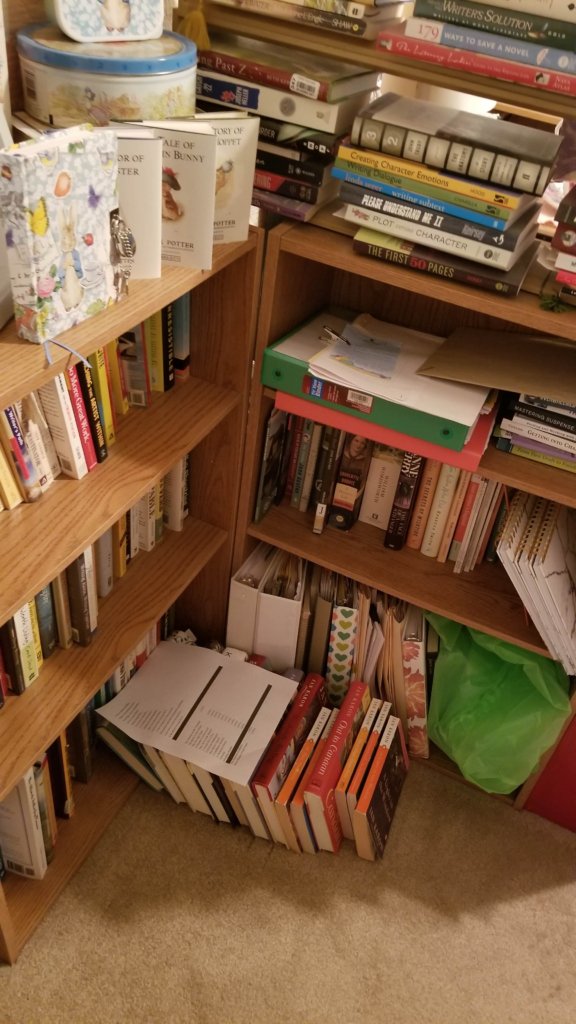
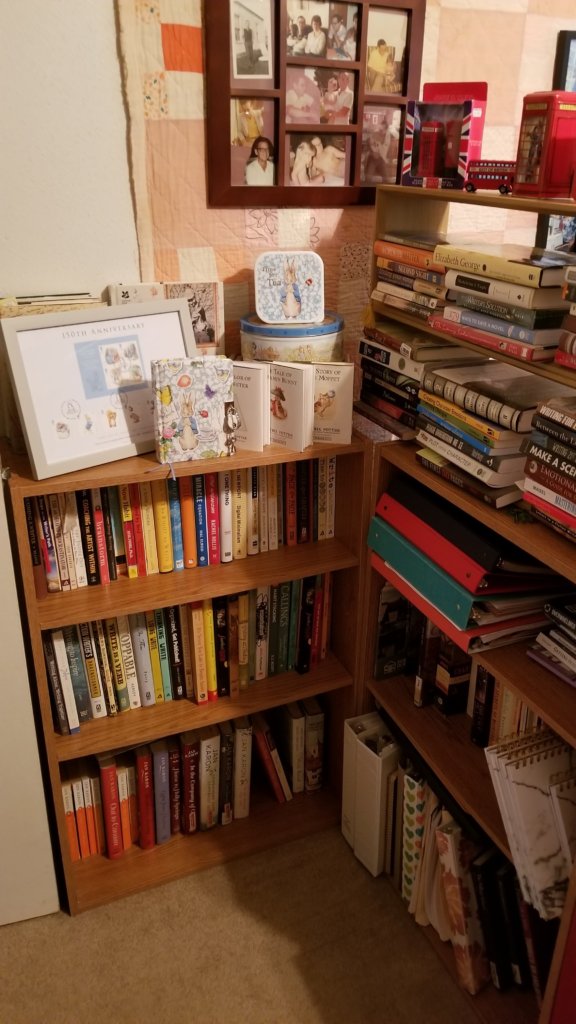
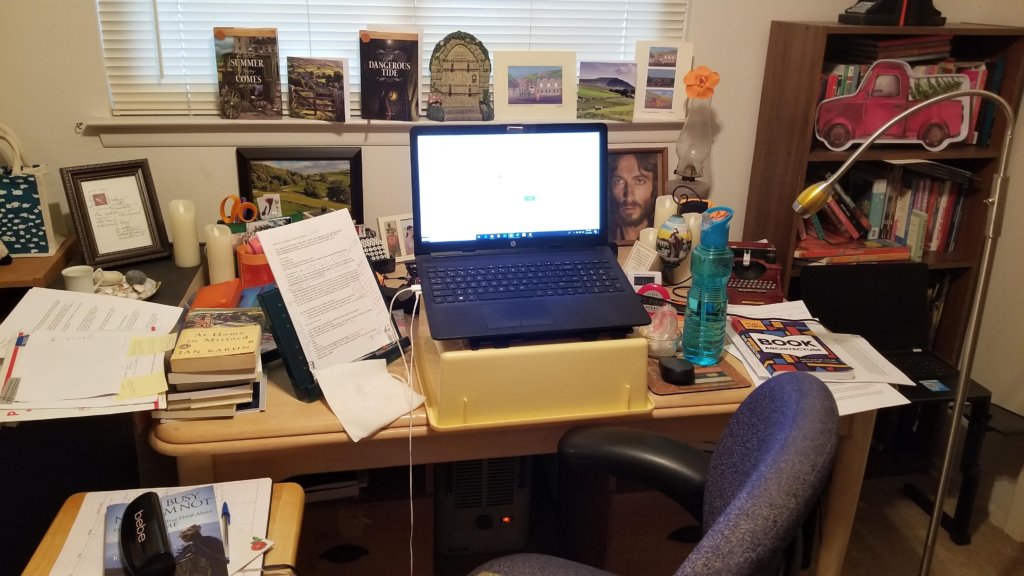
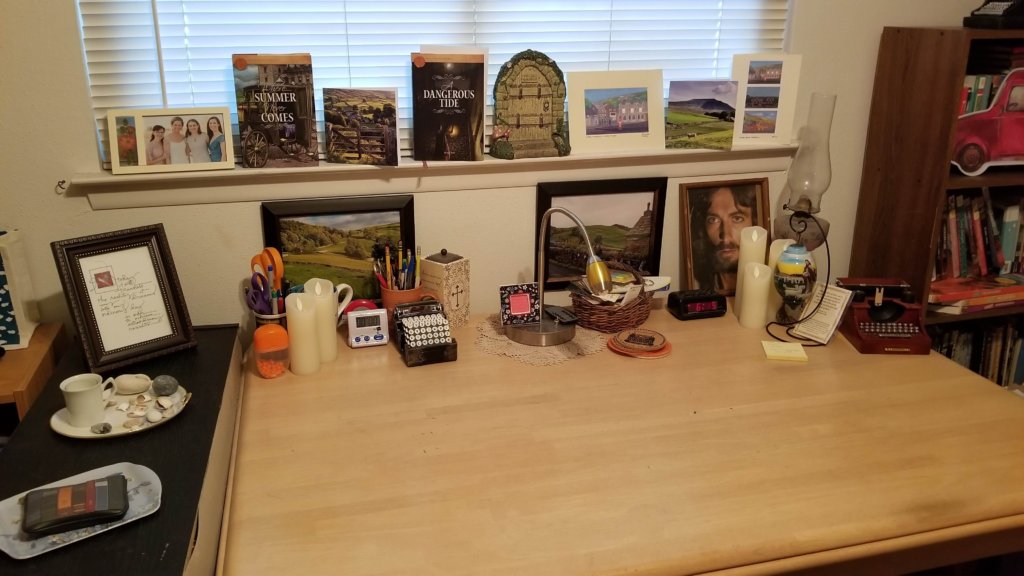
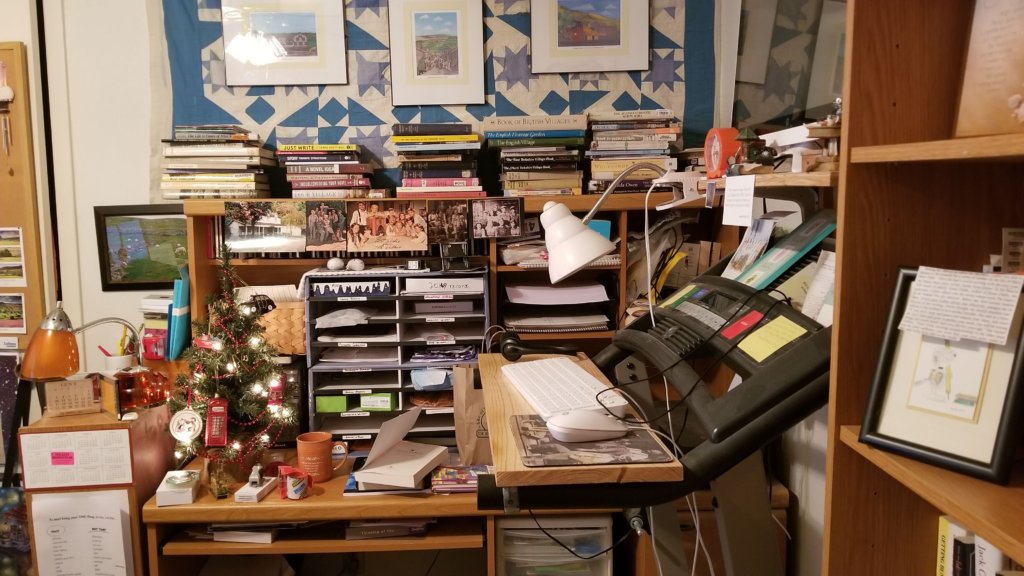
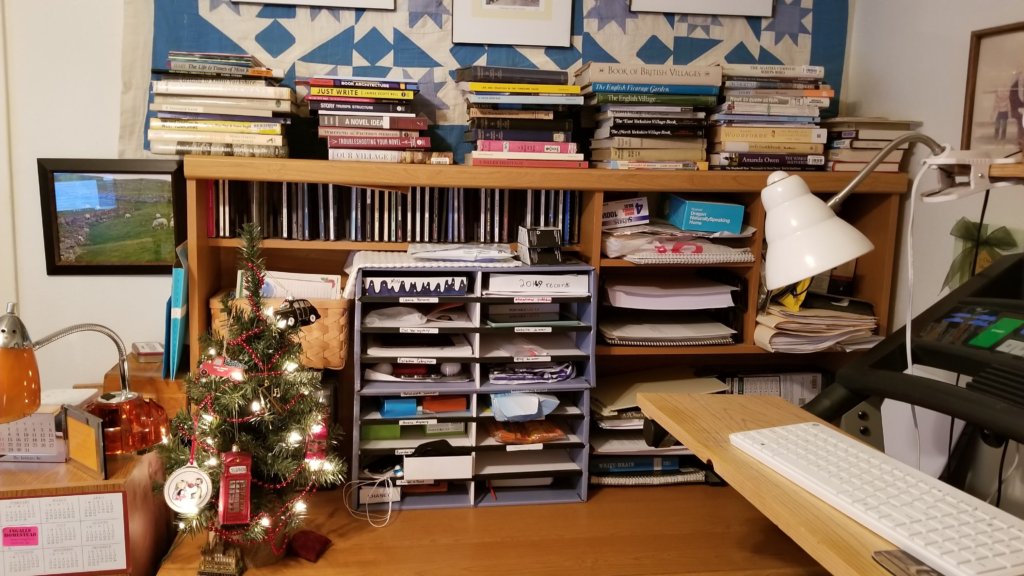
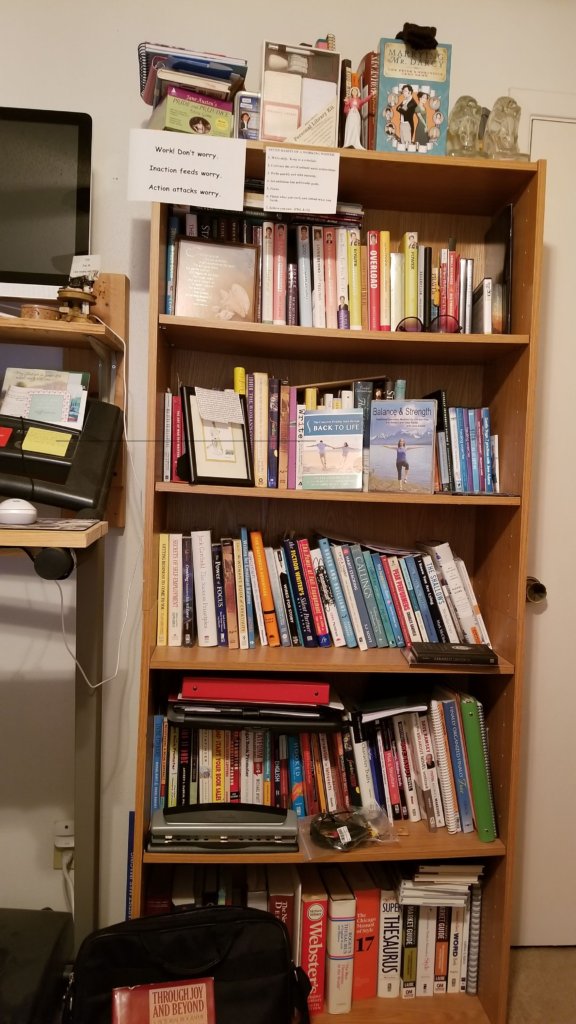
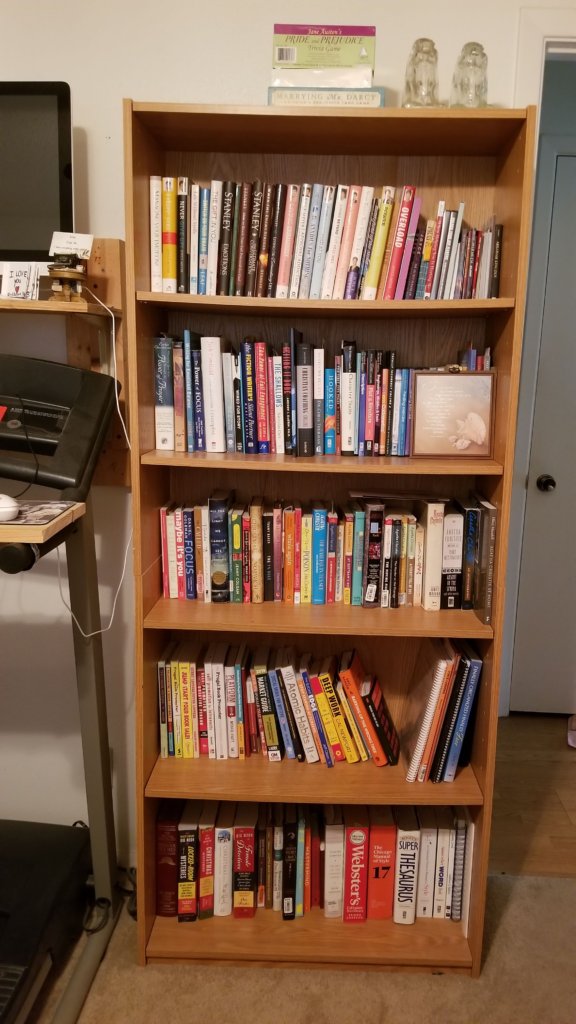
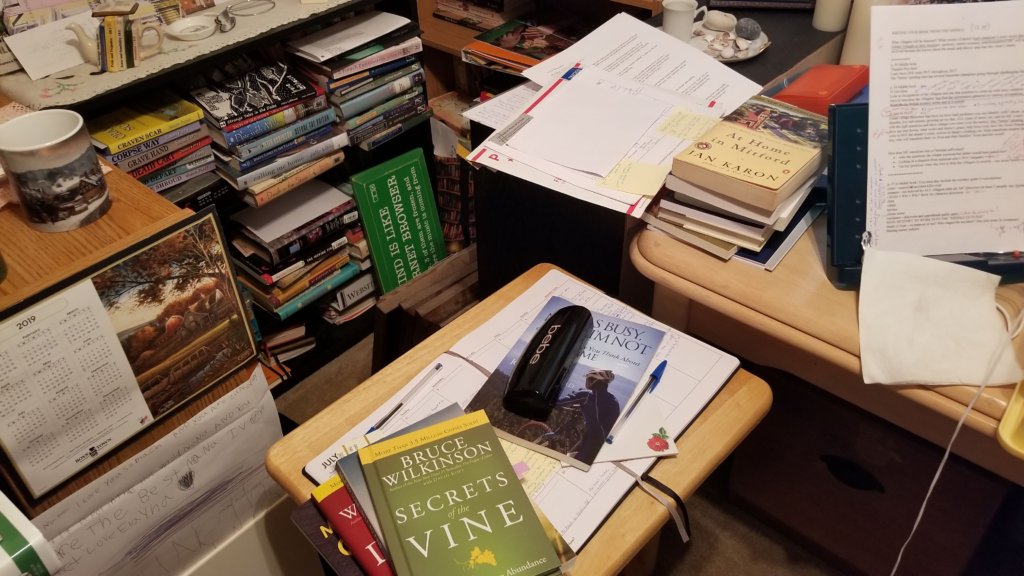
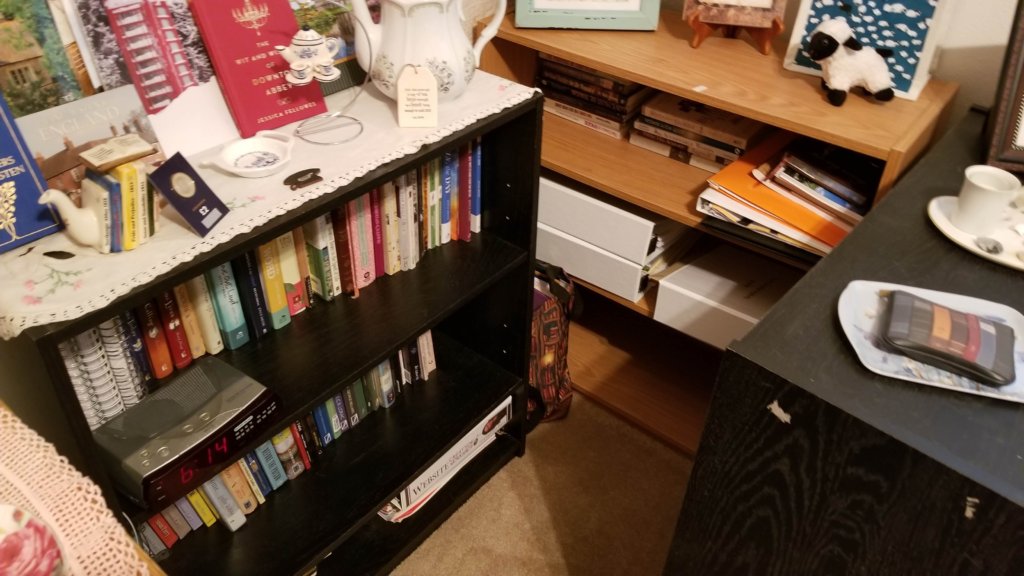
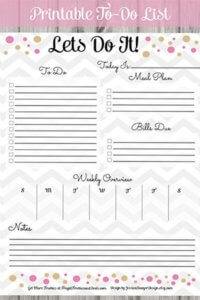
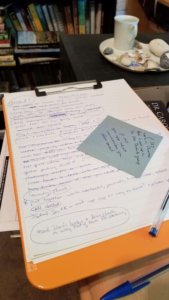 So this is my to-do list left for today, with five or six writer things to do before I can start the packing or run to the store for shampoo and all the little travel things you need. Then run some laundry, clean out the refrigerator, and try to figure out how I am going to fit everything I want to take with me into a suitcase and carry-on.
So this is my to-do list left for today, with five or six writer things to do before I can start the packing or run to the store for shampoo and all the little travel things you need. Then run some laundry, clean out the refrigerator, and try to figure out how I am going to fit everything I want to take with me into a suitcase and carry-on. 

 Are you as productive as you’d like to be?
Are you as productive as you’d like to be?